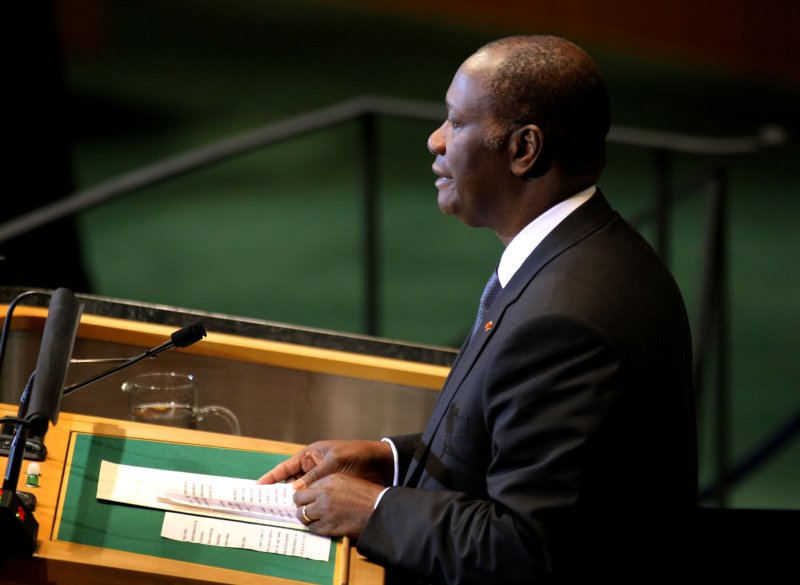1 of 2 | Alassane Ouattara, president of the Ivory Coast, addresses the 66th session of the United Nations General Assembly at the UN on September 22, 2011 in New York City. UPI/Monika Graff |
License Photo
UNITED NATIONS, Jan. 27 (UPI) -- The root causes of instability in Ivory Coast are still present despite political and economic improvements, the U.N. Security Council was told.
Ivory Coast last year had its first election for its legislative assembly since a disputed November 2010 contest pushed the country toward civil war.
Bert Koenders, U.N. special envoy to Ivory Coast, told members of the U.N. Security Council that, in general, the political, economic and security situation in the country was improving though key challenges remain.
"The root causes of instability and potential triggers of violence have remained," he said. "Important challenges and issues relating to security and national reconciliation should not be underestimated and require the political attention of the council."
November 2010 elections were meant to unite an Ivory Coast divided by earlier civil war. The ensuing political conflict ended with former Ivorian President Laurent Gbagbo awaiting trial at the International Criminal Court for alleged crimes against humanity.
Alassane Ouattara, the country's current president, said during recent meetings with U.S. Secretary of State Hillary Clinton that his was a nation at peace.
Humanitarian groups said both sides to the political conflict likely committed atrocities during the post-election crisis.





